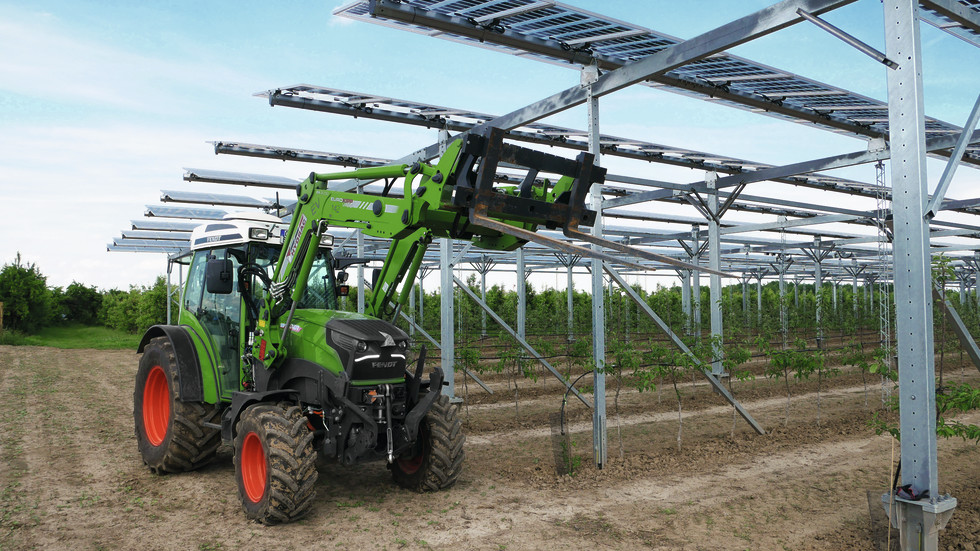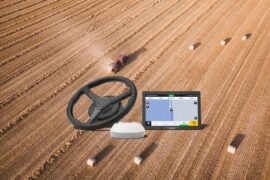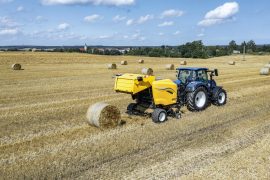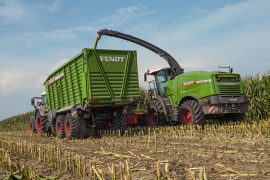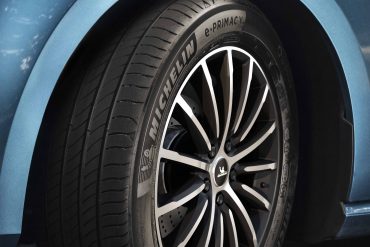Farming is facing new challenges. Spurred on by climate change, there’s a call to develop new strategies to be able to continue to farm agricultural products in Germany in the future. In light of this, the Fraunhofer Institute for Solar Energy Systems (ISE) has launched a new project: “APV in Fruit Cultivation – agrivoltaics as a resilience concept to adapt to climate change in fruit cultivation”.
Fruit growing in Germany is already suffering the consequences of climate change: intense sunlight, rising temperatures and increasingly frequent extreme weather events such as hail and heavy rain. To counteract losses in quality and yield, hail protection nets and membrane sheets are more common sights these days in fruit farming. As part of the “APV in Fruit Cultivation” project, the aim over the next four years is to investigate the extent to which agrivoltaics can assume this protective role in apple growing, which system design suits this kind of crop and to what extent the PV system influences crop yields.
At the Nachtwey ecological fruit farm in Germany’s Rhineland Palatinate, the Fraunhofer Institute (ISE) is researching an agrivoltaic system (APV) for the first time. The farm uses its land for the agricultural production of apples as well as to generate electricity using solar panels.
The aim of the project is to increase resilience in fruit growing and to contribute to resource-efficient land use, counteracting the conflicts in land use between photovoltaic ground installations and agriculture.
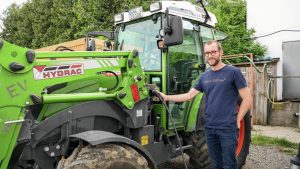
Circular economy with the Fendt e100 Vario
The research project also aims to determine how the power generated can be used upstream and downstream on the farm, including through the use of electrified machinery or storing the apple harvest in an electrically operated cold store. AGCO/Fendt is providing the battery-electric Fendt e100 Vario tractor for the entire research period.
The small tractor is used on the Nachtwey organic fruit farm as a farm tractor for all the usual tasks around a fruit farm, including mulching the weeds between the fruit trees, transporting the harvest to the warehouse and loading fruit crates. The Fendt e100 Vario with front loader and work basket attached was already put to task in spring 2021, to help build the PV modules.
The apple orchard’s self-generated electricity is used to charge the battery-powered/electric small tractor Fendt e100 Vario on the organic farm. Generating and also using the electricity completes the energy cycle, making full use of the potential of the internally sustainable system.
The ecological footprint of the tractor can be massively reduced by saving CO2 and using green electricity. With this, the power recycling system meets society’s demands for more sustainable agriculture.
An agricultural PV system can replace conventional protective structures, such as hail protection nets and membrane coverings in fruit growing, protecting the plants and fruit from harmful environmental influences. The PV system design is adapted to farming requirements in the vegetation phase, so that agricultural work is not restricted and can even benefit from its protective function. The best outcome of agricultural PV fruit-growing production would not be to maximise crop yields as such, but to enable safe and high-quality apple production with additional solar power generation.
The Fraunhofer ISE is supported in this project by various partners from the public sector as well as industry. BayWa r.e., the power plants of Schönau and DLR Rheinland Pfalz are managing various tasks that contribute to the success of the research.
Due to be completed by 2025, the project is designed to study the social aspects as well as farming. The researchers will publish a guideline for fruit growers and, along with local decision-makers, will examine the options of integrating agricultural PV solutions into the existing climate protection plan.

